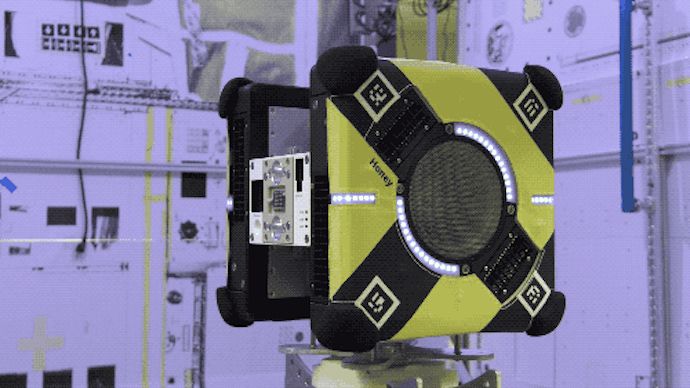Apr 5, 2019
New NASA Robots Will Be ‘Busy As a Bee’ Aboard ISS
Posted by Genevieve Klien in categories: robotics/AI, space
NASA’s newest International Space Station crew members are creating quite the buzz.
The agency is sending three Astrobee robots to the orbiting outpost.
The cube-shaped devices will stay “as busy as a bee” flying around the station, assisting with routine tasks like maintenance and inventory tracking.
Continue reading “New NASA Robots Will Be ‘Busy As a Bee’ Aboard ISS” »
















